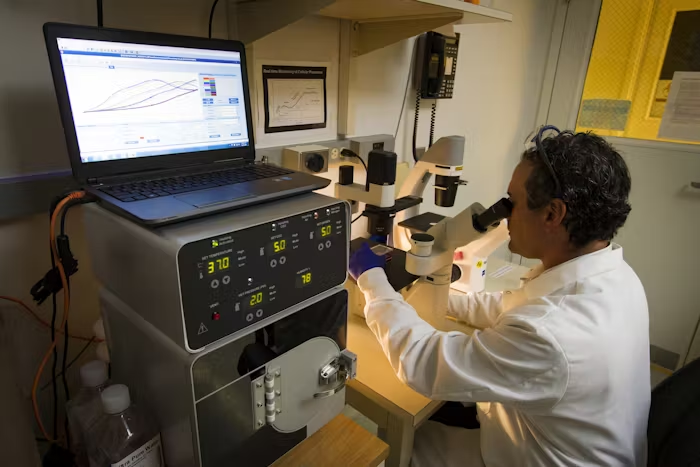Understanding the role of genetics in health is a fascinating journey into what makes each of us unique. From physical attributes like eye color and height to the risk of developing certain diseases, our genetic code plays a critical role in shaping our overall health. Advances in science have made it possible to decode the mysteries of our DNA, offering insights into how genes influence our well-being and what we can do to manage genetic risks effectively.
This article explores the connection between genetics and health, providing a foundation for understanding how our DNA impacts our lives and how we can use this knowledge to make informed choices.
What Are Genetics?
Genetics is the study of how traits are passed from parents to offspring through genes. Genes are segments of DNA located on chromosomes, acting as instructions for building and maintaining the body. Each individual inherits a unique combination of genes from their parents, which explains why siblings may look similar but still have distinct differences.
Genes don’t work in isolation. They interact with environmental factors like diet, lifestyle, and exposure to toxins, influencing how our genetic potential is expressed.

The Role of Genetics in Health
Genetics plays a crucial role in determining an individual’s predisposition to various health conditions. Here are some key ways genetics influences health:
1. Genetic Disorders
Some health conditions are directly caused by mutations in a single gene. These are known as monogenic disorders, such as:
- Cystic Fibrosis: A condition affecting the lungs and digestive system.
- Sickle Cell Anemia: A blood disorder leading to abnormal red blood cell shape.
- Huntington’s Disease: A degenerative brain condition.
In these cases, the mutation can be inherited from one or both parents, depending on whether the disorder is dominant or recessive.
2. Multifactorial Conditions
Many common health issues, like heart disease, diabetes, and certain cancers, are influenced by multiple genes interacting with environmental factors. For example:
- A family history of heart disease may increase your risk, but lifestyle choices such as diet and exercise also play a significant role.
- Type 2 diabetes often runs in families, but maintaining a healthy weight and staying active can reduce the likelihood of developing the condition.
3. Pharmacogenomics
Genetics can also affect how individuals respond to medications. Pharmacogenomics studies the interaction between genes and drugs, allowing for personalized medicine. This can lead to better treatment outcomes by tailoring medications and dosages to an individual’s genetic profile.
Genetics and Cancer Risk
One of the most studied areas in genetics is its role in cancer. Mutations in specific genes, such as BRCA1 and BRCA2, significantly increase the risk of breast and ovarian cancer. Understanding genetic predispositions allows for early interventions, such as regular screenings or preventive measures.
However, not all genetic mutations lead to cancer. Lifestyle and environmental factors can influence whether a person with a genetic predisposition actually develops the disease.
Nature vs. Nurture: The Interaction Between Genetics and Environment
The debate between nature (genetics) and nurture (environment) highlights the complex relationship between our genes and lifestyle. While genetics provide a blueprint for our potential health outcomes, environmental factors often determine how those genes are expressed.
Examples of Gene-Environment Interaction:
Obesity: Genetics can influence metabolism and appetite, but diet and exercise largely determine weight management.
Lung Cancer: A genetic predisposition to lung cancer may increase risk, but avoiding smoking significantly reduces the likelihood of developing the disease.
Epigenetics, a field of study focusing on how external factors affect gene expression without altering the DNA sequence, further illustrates this interplay. Factors like stress, nutrition, and exposure to toxins can activate or suppress certain genes, influencing health outcomes.
Genetic Testing: A Tool for Better Health
Genetic testing has become increasingly accessible, offering insights into your health risks and ancestral background. Testing can identify:
- Predispositions to specific conditions.
- Carrier status for hereditary diseases.
- Pharmacogenomic information for optimized medication use.
While genetic testing can provide valuable information, it’s important to approach it with caution. Results are not definitive predictors of health outcomes and should be interpreted with the guidance of a healthcare professional.
How to Manage Genetic Risks
Although you can’t change your DNA, understanding your genetic risks allows you to make proactive choices:
1. Adopt a Healthy Lifestyle
Regardless of your genetic predispositions, habits like eating a balanced diet, exercising regularly, and avoiding smoking can significantly improve your health.
2. Regular Screenings
If you have a family history of certain conditions, regular check-ups and screenings can help detect issues early when they are most treatable.
3. Stay Informed
Learn about your family’s medical history and discuss any concerns with a genetic counselor or healthcare provider.
4. Embrace Personalized Medicine
Advancements in personalized medicine allow treatments to be tailored to your genetic profile, improving effectiveness and reducing side effects.
Ethical Considerations in Genetics
While genetic research offers immense potential, it also raises ethical questions. Issues like genetic discrimination by employers or insurers and the privacy of genetic information highlight the need for robust policies to protect individuals.
Genetics plays a profound role in shaping our health, offering both opportunities and challenges. By understanding our genetic makeup, we can make informed decisions to mitigate risks and enhance well-being.
However, genetics is just one piece of the puzzle. A proactive approach to lifestyle and healthcare is essential for optimizing health outcomes. Armed with knowledge and healthy habits, you can take charge of your health — no matter what your DNA says.
The future of genetics in health is bright, offering hope for personalized treatments and preventive care. Embrace the power of understanding your genetic blueprint to live a healthier, more informed life.














